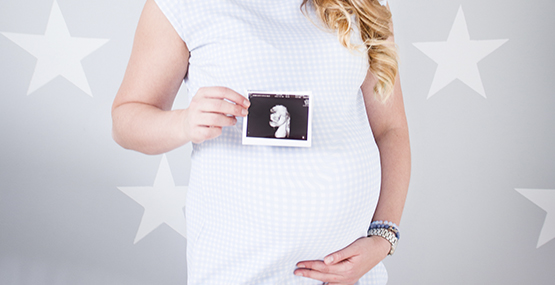
The Latest and greatest treatments for IBD: What to believe
What’s the best IBD medicine for me? Confusion on television and in your inbox....
See moresign up for our newsletter
SubscribeActive Crohn's disease or ulcerative colitis creates the greatest risk to a mother and her unborn infant. Compared to those risks, numerous studies show that most medicines are safe for the baby (Other than methotrexate and certain mesalamines or 5-ASAs.
The medicines that are safe when used properly:
Steroids During Pregnancy
A study in 2003 (P Pradat and others, Birth Defects Research) suggested that cleft lips are slightly more common if a mother needs steroids in the first 3 months of her pregnancy; but later studies show that steroid use does not cause any increase in problems for a baby when compared to the all of babies born. There's no evidence of earlier deliveries or smaller babies either. That may be because steroids like prednisone are converted to less active chemicals in babies–and budesonide is largely eliminated before it even gets to the baby.
So while steroids like prednisone are generally used to a minimum because of their side effects, their short term use to overcome an IBD flare during pregnancy may be safe for the mother and baby.
Mesalamines During Pregnancy
The mesalamine or 5-ASA class of medications sold in the United States (such as Apriso, Colazol, Delzicol, Lialda and Pentasa) are safe during pregnancy. However, there are a few (though none in the US) that contain phthalates which can cause problems for unborn infants.
Thiopurines During Pregnancy
These medicines, Azathioprine and 6-MP, lower the immune system's over-response in IBD. While studies have shown that there is an increased risk of having a preterm baby, there does not appear to be any increased risk of the baby having any birth defects or being small or underweight. In addition, several small studies indicate that the use of thiopurines during pregnancy does not have any serious or long-term effect on a baby's immune system.
However, the metabolism of thiopurines is changed during pregnancy and can result in anemia for the mother. So you will want to have your doctor check drug levels as well other as for anemia, iron, folate and the other standard blood levels that are done.

Anti-TNFs During Pregnancy
The anti-TNFs are targeted antibodies and as result the large molecules that have to be actively transported across the placenta, if they are to get to the baby. Fortunately, studies have shown that the anti-TNFs do not cause any other concerns in small or early births or in any birth defects. However, antibody passage can occur toward the end of pregnancy. Cimzia is structured in a way that it has less transmission to the baby. The other medicines (Humira and Remicade) can cross the placenta and can be shown in the babies' blood up to 6 months later. Limited case reports have shown that some babies may have lower white counts and some increase in infections, but not when this is compared to other children of mothers who have IBD. The concern that these babies might not handle infections as well as other babies has also led to the recommendation that they not receive any vaccinations (immunizations) with live viruses or tuberculosis during their first 6 months.
This passage of these antibodies to the baby late in pregnancy has led to attempts to schedule the dosing of these medicines before a baby is born. This is easier to accomplish with Remicade's less frequent dosing than for Humira. The greater concern however, is that when these medicines are stopped, there is a higher rate of a relapse (a flare) during the pregnancy, which can be dangerous for the other and baby.
Combination Treatment During Pregnancy
Commonly, these medicines are combined to try to maximize their benefit. While studies to prove the safety of this approach are being evaluated, to date there is no evidence of any increased risks for either the mother or the baby. Again, the most important goal (for both the baby's and mother health) is to maintain the mother's optimal condition during pregnancy. If that can be done with a single medication and diet, wonderful; but combination treatment should be used if needed.
Newer IBD Medicines During Pregnancy
Two recently released medications that also target the immune system seem to be effective for the treatment of IBD. As a result, few pregnancies have been recorded with either of the medicines, vedolizumab (Entyvio) or ustekinumab (Stelara) in the clinical trials or in practice.
With vedolizumab, only 20 pregnancy outcomes are recorded to date with 10 live births (2 were preterm). There were 5 miscarriages and 1 who had a birth defect, while 5 other mothers elected to terminate their pregnancy.
There have only been 5 recorded pregnancies during the ustekinumab clinical trial, with 1 that resulted in a miscarriage.
Conclusion
Weighing the risks and benefits of IBD treatment during pregnancy, the greater risk is from active IBD with inadequate treatment. By comparison, most of the medicines used to control IBD are relatively safe for mother and babies. Certainly, more studies are needed to help assure the safety of medicines when infants are developing both before and after birth.
This article, as well as all others, was reviewed and edited by a member of our Medical Advisory Board.
Subscribe Be the first to know